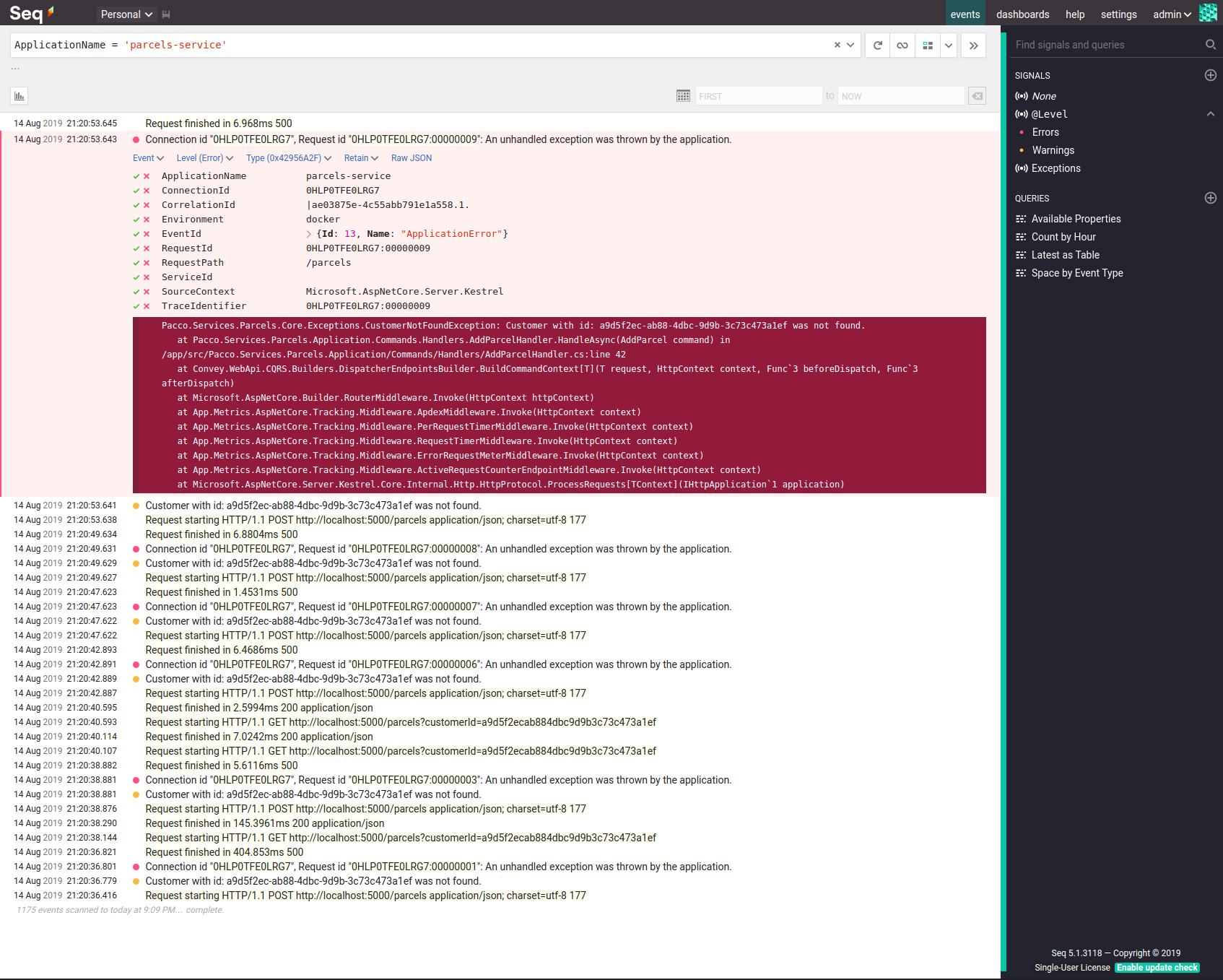Overview
Adds the logging capability, by default uses Serilog for logging with 3 optional extensions (sinks):
- Console
- File
- Seq

Installation
dotnet add package Convey.Logging
Dependencies
Usage
Extend Program.cs -> CreateDefaultBuilder() with UseLogging() that will add the required services and configure ILogger available in ASP.NET Core framework.
public static IWebHostBuilder GetWebHostBuilder(string[] args)
=> WebHost.CreateDefaultBuilder(args)
.ConfigureServices(services => services.AddConvey().Build())
.UseLogging();
Then, simply inject ILogger<T> (being ASP.NET Core built-in abstraction) to write the logs.
public class SomeService
{
private readonly ILogger<SomeService> _logger;
public SomeService(ILogger<SomeService> logger)
{
_logger = logger;
}
public void Foo()
{
_logger.LogInformation("Foo");
}
}
Options
applicationName- sets the optional application name property used for log enrichment.serviceId- sets the optional service id property used for log enrichment.excludePaths- optional endpoints that should be excluded from logging (e.g. while performing the health checks by other services).console.enabled- enables/disables console logger.file.enabled- enables/disables file logger.file.path- path to the file logs.file.interval- how often should the new file with logs be created.seq.enabled- enables/disables Seq logger.seq.url- URL to Seq API.seq.token- API key (if provided) used while sending logs to Seq.
appsettings.json
"logger": {
"level": "information",
"excludePaths": ["/", "/ping", "/metrics"],
"excludeProperties": [
"api_key",
"access_key",
"ApiKey",
"ApiSecret",
"ClientId",
"ClientSecret",
"ConnectionString",
"Password",
"Email",
"Login",
"Secret",
"Token"
],
"console": {
"enabled": true
},
"elk": {
"enabled": false,
"url": "http://localhost:9200"
},
"file": {
"enabled": true,
"path": "logs/logs.txt",
"interval": "day"
},
"seq": {
"enabled": true,
"url": "http://localhost:5341",
"apiKey": "secret"
},
"tags": {}
},